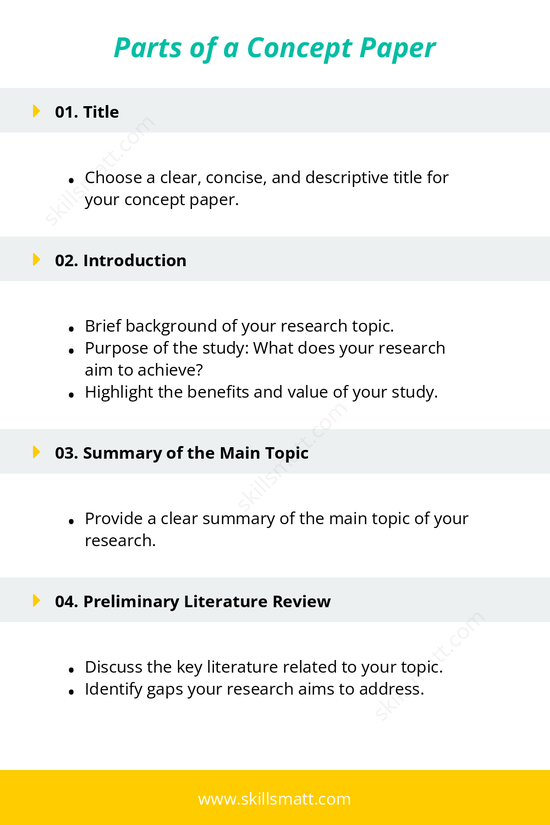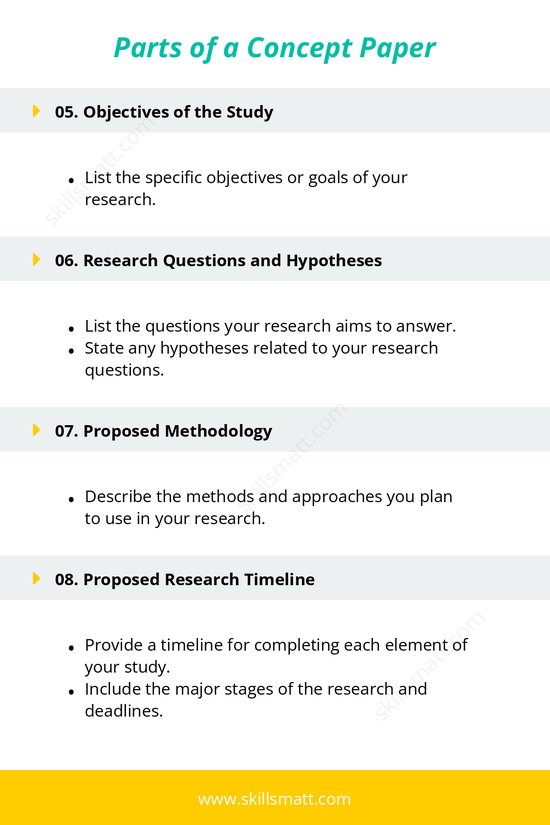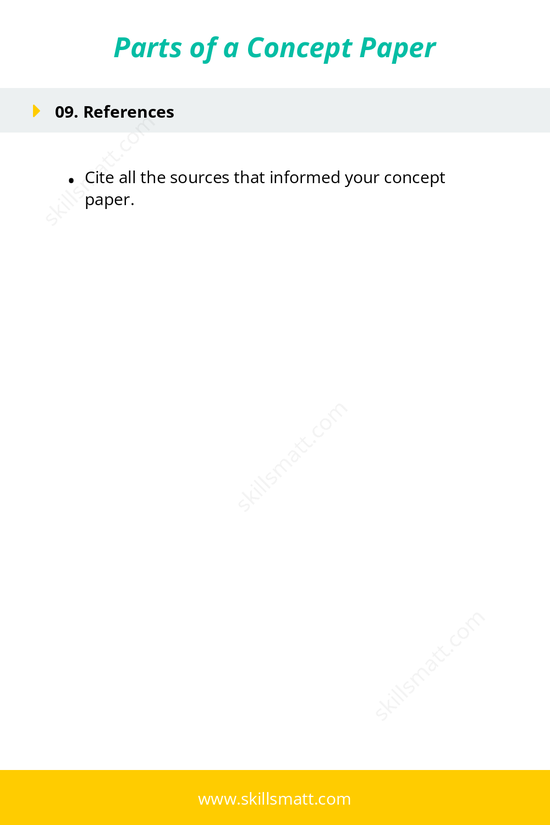Parts of a Concept Paper
A concept paper is a brief document that outlines a proposed research project or idea. It serves as a proposal to introduce the research topic, its significance, and the methodology. Below are the essential components of a concept paper that should be included to make it comprehensive and clear.
01. Title
- Choose a clear, concise, and descriptive title for your concept paper: The title should reflect the focus of your proposed research while being clear and easy to understand. Avoid overly technical jargon unless necessary, and make sure it accurately represents the main topic of the research.
02. Introduction
- Brief background of your research topic: Start with a brief introduction to your research area. Provide the reader with some context to understand why the topic is important.
- Purpose of the study: Clearly state what your research aims to achieve. What is the goal of your study? Is it to solve a problem, fill a gap in knowledge, or explore a new concept?
- Highlight the benefits and value of your study: Explain why your research is significant. How will it contribute to the field or society? What value will it add to existing knowledge?
03. Summary of the Main Topic
- Provide a clear summary of the main topic of your research: This section should present a succinct overview of the research area you are investigating. Highlight the main aspects or questions your research will address.
04. Preliminary Literature Review
- Discuss the key literature related to your topic: Review the existing research on your topic. What have others studied and discovered in this field? This will help position your research within the context of previous work.
- Identify gaps your research aims to address: Highlight the gaps in current knowledge that your research will aim to fill. This shows the importance of your study and provides a clear reason for undertaking the project.
05. Objectives of the Study
- List the specific objectives or goals of your research: Provide a clear list of the goals you hope to achieve through your study. These should be specific, measurable, and feasible within the scope of your research.
06. Research Questions and Hypotheses
- List the questions your research aims to answer: Clearly state the research questions that your study will address. These questions will guide the direction of your research and analysis.
- State any hypotheses related to your research questions: If applicable, present your hypotheses—the assumptions or predictions that you will test in your research.
07. Proposed Methodology
- Describe the methods and approaches you plan to use in your research: Outline the research design, data collection methods, and analysis techniques you will employ. Will your study be qualitative or quantitative? Will you conduct experiments, surveys, or case studies?
08. Proposed Research Timeline
- Provide a timeline for completing each element of your study: Break down the research project into stages and assign deadlines for each stage. This will help you stay organized and on track.
- Include the major stages of the research and deadlines: Your timeline should include key milestones such as data collection, analysis, and writing the final report.
09. References
- Cite all the sources that informed your concept paper: Include a reference list with citations for any sources you consulted in preparing your concept paper. Make sure to follow the appropriate citation style (e.g., APA, MLA, Chicago).



